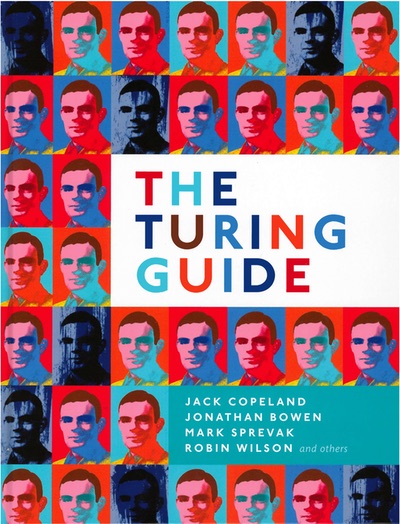Is the whole universe a computer?
(with Jack Copeland & Oron Shagrir)
2017 The Turing Guide: Life, Work, Legacy (edited by Jack Copeland, Jonathan Bowen, Mark Sprevak & Robin Wilson), Oxford University Press: Oxford, pp. 445–462
Last updated 23 August 2016
The theory that the whole universe is a computer is a bold and striking one. It is a theory of everything: the entire universe is to be understood, fundamentally, in terms of the universal computing machine that Alan Turing introduced in 1936. We distinguish between two versions of this grand-scale theory and explain what the universe would have to be like for one or both versions to be true. Spoiler: the question is in fact wide open – at the present stage of science nobody knows whether it’s true or false that the whole universe is a computer. But the issues are as fascinating as they are important, so it’s well worthwhile discussing them. We begin right at the beginning: what exactly is a computer?

The theory that the whole universe is a computer is a bold and striking one. It is a theory of everything: the entire universe is to be understood, fundamentally, in terms of the universal computing machine that Alan Turing introduced in 1936. We distinguish between two versions of this grand-scale theory and explain what the universe would have to be like for one or both versions to be true. Spoiler: the question is in fact wide open – at the present stage of science nobody knows whether it’s true or false that the whole universe is a computer. But the issues are as fascinating as they are important, so it’s well worthwhile discussing them. We begin right at the beginning: what exactly is a computer?
HTML version of full text not available
PDF available above
